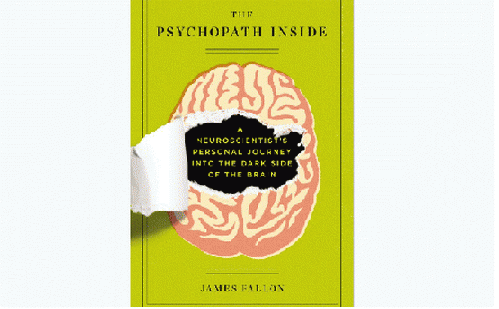This is the second half of the transcript of my podcast broadcast December 18, 2013
Thanks to Dick Overfield for transcript checking
R.K.: And welcome to the Rob Kall Bottom Up Radio Show, WNJC 1360 AM out of Washington Township, New Jersey reaching Metro Philly and South Jersey. My guest tonight is James Fallon. He is the author of the book, The Psychopath Inside; A Neuroscientist's Personal Journey into the Dark Side of the Brain. Welcome to the show
and here's where the second half of the interview picks up:
R.K.: You said there were about fifteen warrior genes and about fifty genes tied to psychopaths?
J.F.: Well, there's about fifteen tied to empathy, about fifteen tied to aggression and violence and about twelve, or so, right now, that are associated with response to anxiety, for example, and other traits that play into psychopathy. So, there's a lot and you can have many combinations. Most people inherit a kind of mix of these so they're kind of average. They end up being kind of average level of aggression, violence, empathy but there are people at the very ends of the spectrum, of each spectrum genetically, of these traits. So some people you can never get mad. They're really p*ssy cats. You can't get them mad. Other people, who impulsively get mad, they stay mad, are at the other end and they see red very quickly. We all know these people. Those are really the impulsive hot heads. They have more of these warrior genes that control serotonin.
R.K.: Okay. So, how about you? Where do you fit in with how many of the fifteen do you have of the warrior genes?
J.F.: Well, I have almost all of the alleles, the genetic alleles that are associated with aggression and violence and almost all of them that are associated with low anxiety and low interpersonal emotional empathy. That's different than cognitive empathy. So I have those combinations, so like my brain scan, it's, I have kind of a severe combination. This all has to do with the luck that genetically what you inherited right? This is just a roll of the dice and I got a funny roll, but other people get this but the chances of it are very, very low to get as many as I did. But-
R.K.: Are there numbers, I ask you that question, is there a percentage, what's the percentage of people that get enough so they're much more likely or have all fifteen of them for example.
J.F.: That's not really known. Quantitatively, that sort of equation is not quite known because in order to study these, you have to, any particular trait you need about forty people so that kind of study with all those different combinations it would cost, it's about a fifty million dollar study. So it can be done and now we can do it because we can look at every little piece, not only of the coding DNA, but all of the regulators too and how they interact, but it's quite expensive right now to do that.
Next Page 1 | 2 | 3 | 4 | 5 | 6 | 7 | 8
(Note: You can view every article as one long page if you sign up as an Advocate Member, or higher).






